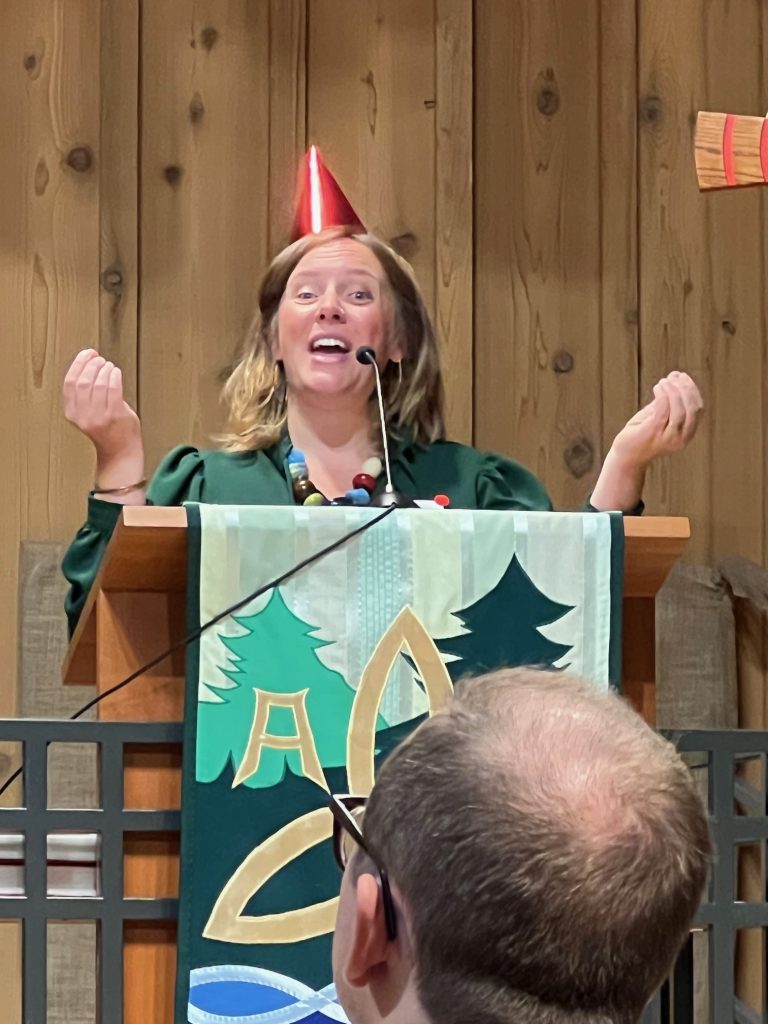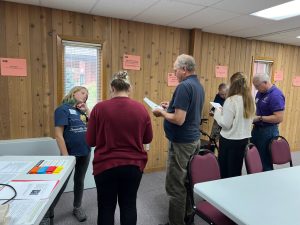This is a re-post of an article by Rev. Taryn Montgomery, originally published in the Northeast Minnesota Synod Enews, covering the October 12th “Walking Together” celebration of ELCA World Hunger’s 50th anniversary. Note: this article was written on October 29th, before the November 5th election, which Rev. Montgomery references in the piece as an upcoming event.
“For you always have the poor with you, but you will not always have me.” -Matthew 26:11
“Pastor Taryn, why are we gathering again?” asked the 13 year-old usher, as we prepared for worship at the Walking Together event earlier this month.
“Because we’re marking the 50th anniversary of world hunger and how we as a church have been able to help those who experience food scarcity,” I responded.
“Um, I’m pretty sure world hunger has been around longer than 50 years,” she said deadpan.
Touché.
I left out the ELCA part of World Hunger when responding to Lila that morning, but she is right. Jesus was right. People have been hungry for centuries upon centuries. The poor have been among us from the very beginning. And let’s be clear, “the poor” is not a “them”. It can be our neighbor, our family, even ourselves.
It’s in this spirit that we gathered on Saturday, October 12th at Lutheran Church of the Cross in Nisswa to straddle the line between celebrating a ministry milestone and being inspired to “keep on” in our work of ending hunger. Both/and.
And it was a great event! We gathered in worship, confronting a scripture that both challenged and stirred us. We experienced a poverty simulation, walking through a month in the life of a family trying to make ends meet. We learned how hunger interacts with issues of climate change, racism, and conflicts in the Middle East. We wore party hats and blew noise makers, and we gathered in silence for the people of Gaza. We enjoyed a delicious Caribbean lunch, and we remembered those who went without a meal. We made art together, bid on baskets together, and rallied around a common mission together – to give thanks for the past 50 years and to keep working long into the future.
One week from today our polls will open. Some of you have already filled out your ballot. As a nation we will cast our vote, a kind of faith statement. A statement of what we believe, what we value, what we hope for. We won’t all vote the same way and that’s okay. But may we vote in the spirit of reaching across the table, of extending the table. In the spirit of invitation for the hungry, the poor, and those on the margins – those we will always have with us. May we cast our vote recognizing the both/and experience of our faith.
Lila was right, world hunger has been around far longer than 50 years, and it doesn’t have to be that way in the future. It might be – history has shown that to be true. But it doesn’t have to be. Because we are people of faith, followers of Jesus. And, if there’s one thing we’re really good at, it’s hoping for things as yet unseen.


